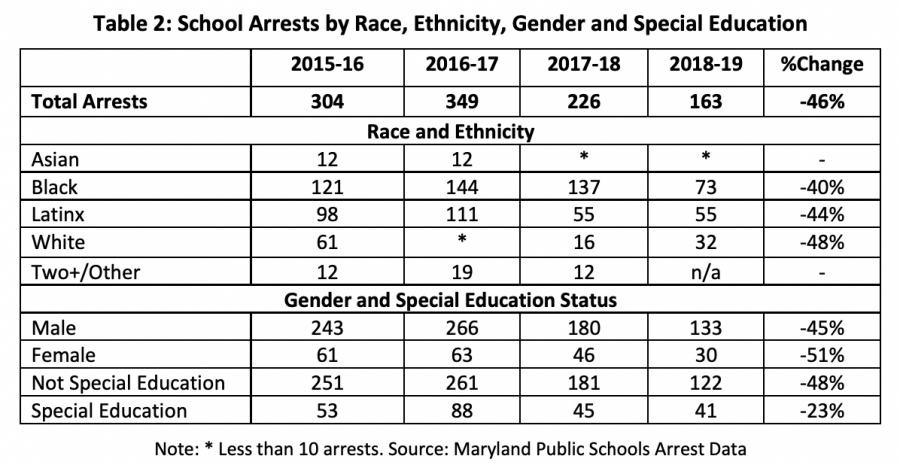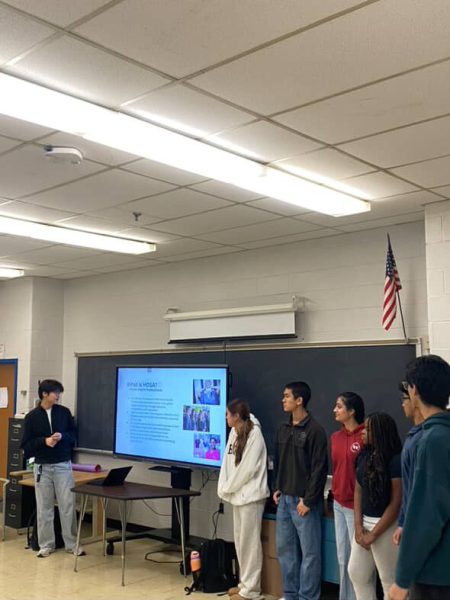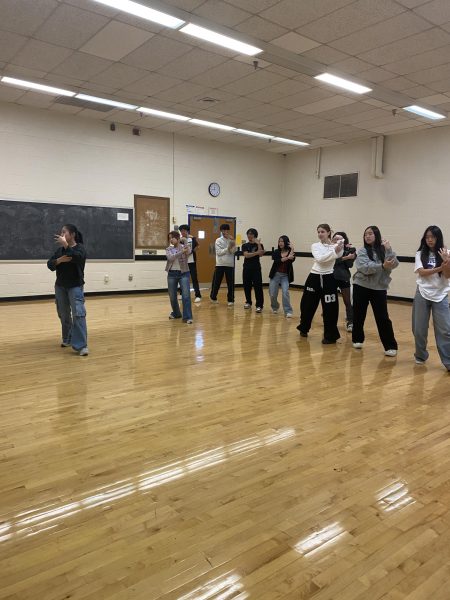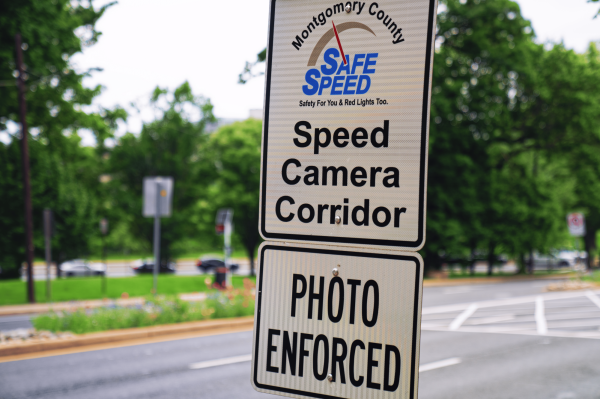Board of Ed holds hearings to determine fate of county school resource officer program
A chart by the Montgomery County Office of Legislative Oversight (OLO) details school arrests by race, ethnicity, gender, and special education.
The Board of Education held two virtual hearings on Mar. 2 and 4 to hear testimony from students, teachers and county residents about the continuation of MCPS’s current school resource officer (SRO) program.
This topic has been debated throughout the county following the resurgence of the Black Lives Matter movement after George Floyd, Breonna Taylor, Elijah McClain and more Black citizens were killed by police officers last summer. Increased publicity of police violence and systemic racism have raised the question of whether police presence in schools is an equitable policy.
Council members Will Jawando and Hans Reimer introduced Bill 46-20 to the County Council back in November to contest the county’s SRO program and advocate for its termination. Since then, it has seen widespread support among students and even teachers, but also pushback from other council members and even the National Association of School Resource Officers. Council members Craig Rice and Sidney Katz introduced counter-bill 7-21, which would reinforce the roles of SROs and require more training.
Both bills seek to address the idea that SROs disproportionately affect minority students in a negative way, be that through arrests or by inducing psychological distress. The County’s own Office of Legislative Oversight (OLO) said that, upon review, the SRO program “manifested racially disparate juvenile arrest and school discipline rates suggesting the differential treatment of students by race and ethnicity.”
The OLO found that schools with SROs tend to see higher crime rates, but that there is no data quantifying a reduction of crime in schools nor an increase in safety. “Research considering the impact of SROs on student safety are incomplete as methodologically strong evaluative studies considering the hypothesis that SROs makes schools safer are not yet available,” the OLO said.
Meanwhile, student-led advocacy groups around the county like MoCo4Change and MoCo STEPS have shared an initiative to gather student and staff support of the removal bill. This letter to the Board, titled “Statement on SROs by MCPS students,” details the efforts of these student groups to end the SRO program. “As MCPS students, we commit to trauma-informed, healing-centered conflict resolution rather than allowing the criminal justice system to devastate our students and their families,” the letter said.
Albert Einstein junior and MoCo4Change and MoCo STEPS executive Alex Garcia created the letter to represent to the Board how much students care about the issue. “It got over 400 [signatures] in the first four days, has students from grades 6-12, and represents all 25 high schools,” Garcia said.
As the end of the fiscal year approaches, the Board plans to revisit the continuation of the SRO program in May, and is accepting testimony until Mar. 25.
However, a recent budget proposal has already eliminated funding for the program altogether. Moreover, the most recent testimonials submitted to the Board have trended in support of SRO removal. “We’ve already started getting some emails to the Board from people saying MCPS needs to keep the SRO program even with the county executive’s budget proposal. But – big picture – I would say the emails coming into the Board inbox, and I believe the SRO testimony received by the board…are overwhelmingly in favor of removal,” Board member Lynne Harris said.
Regarding the Board’s plans to revisit the issue in May, Harris is interested to see if conversations around the operating budget cause that to change.
If you would like your opinion on this issue to be heard by the Board, send your written, video, or audio testimony to [email protected] with the subject line “SRO Post-Hearing Testimony.”
Your donation will support the student journalists of Thomas S. Wootton High School. Your contribution will allow us to purchase equipment and cover our annual website hosting costs.
Nico DePalma is a 2022 graduate.







